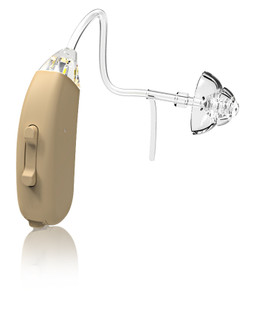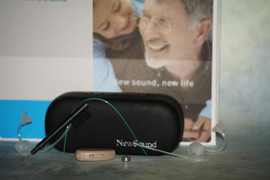Best Supplements to Prevent Hearing Loss
May 02, 2022
Best Food Recipes for your Healthful Hearing
Do you struggle to hear your favorite show on television? Do you have a hard time understanding people and keep asking them to speak up? You’re not alone. Hearing loss is a common problem that afflicts a large segment of the population especially seniors. Thanks to the advancements in the field of audiology there are programmable hearing aids that can help individuals live a normal life even with the disability. But did you know that a diet rich in essential vitamins and minerals can have a significant impact on your hearing as well? Surprised? Yes, it’s true. Nutrition is the key to overall health including the auditory system. Let’s delve into 5 foods that can play a pivotal role in maintaining and preserving your hearing health.
Regular Intake of Folic Acid:
There is documented evidence that intake of antioxidants, especially in the form of folic acid found in spinach, beans, asparagus, broccoli, chickpea, enriched cereals, lentils eggs, and the liver can reduce the risk of developing age-related hearing loss. This could be because folic acid helps in maintaining good circulation. Also, antioxidants help fight the free radicals which lessen blood flow and damage the delicate sensory cells of the inner ears that are vital for healthy hearing.
Magnesium Prevent Noise-Induced Hearing Damage:
Studies indicate that a diet rich in magnesium can prevent hearing loss caused by a noisy environment. How? Magnesium known for neuroprotective effects has the potential to neutralize free radicals, which are harmful molecules that can ravage the cells in the inner ears needed for proper hearing. Foods that pack a huge punch of magnesium comprise fruits and vegetables such as bananas, avocados, artichokes, potatoes, spinach, nuts, legumes, whole grains, tomatoes, spinach, and broccoli. And yes, don’t forget dark delectable dark chocolate.
Healthy Dose of Zinc:
The micronutrient touted for enhancing immunity, healing wounds, supporting cell growth and warding off the common cold is also effective in preventing ear infections. There are studies that suggest zinc can increase the inner ear’s resistance to hearing impairment. It is also is effectual in treating sudden hearing loss as well as reducing the severity of tinnitus in people with normal hearing. Foods rich in zinc include oysters, beef, dry fruits, beans, lentils, peanuts, split peas, crab, lobster, pork, fortified cereals, dark chocolate, and granola bars to name a few. However, there is a need to exercise caution when using zinc supplements. The essential mineral is known to negatively interact with antibiotics and diuretics so it’s important to consult a physician before their dietary addition.
Potassium Rich Foods:
The mineral helps regulate the fluid in the cochlea (inner ear) that plays a crucial role in converting sounds into nerve signals that the brain can use. Potassium levels are known to diminish naturally with advancing years which could trigger age-related hearing loss. Loading up your diet with potassium-rich foods like apricots, bananas, oranges, melons, lima beans, milk, yogurt, tomatoes and raisins among others can contribute to healthful hearing.
Stock up on Seafood:
This is ideal for fish lovers. Omega-3 fatty acids found predominantly in seafood such as salmon, tuna, mackerel, trout or sardines, can have a positive effect on hearing loss. Studies have found that people who consume fatty fish regularly are less likely to be troubled with age-related hearing problems. How do Omega-3 fatty acids help? Apparently, they strengthen and fortify the blood vessels in the ear’s sensory system.
Antioxidant Power of Vitamins C/E:
Vitamins C/E laden with antioxidant powers can thwart cellular harm to the ear. They play a therapeutic role in keeping the free radical activity in check which can cause irreparable damage to healthy hearing cells. Both vitamins can be incorporated into the daily diet by eating citrus fruits, almonds, bell peppers, sunflower oil or peanut butter.
It is no brainer that dietary intake and healthful hearing go hand in hand. If you want to preserve your hearing or prevent the onset of the impairment make certain to stock your kitchen with nutritious foods packed with vitamins and minerals known to boost hearing health. Remember poor hearing compromises the overall quality of life. Hence on perceiving any symptoms of the disability have no qualms about consulting an audiologist for an evaluation to get fitted with amplifying gear at the earliest. You can browse through an impressive range of online hearing aids that caters to specific needs. Also, if you are already wearing the device, it’s imperative to replace faulty hearing aid parts or accessories to ensure that it is in perfect condition and fully functional.










